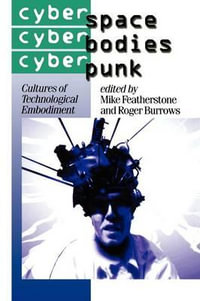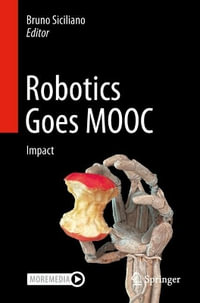Section 1: Systems Theory. Emergent or Just Unexpected? J. Fortune, D. White. Sawu Bona: Systems Theory in Design; J. van der Merwe. Mapping the Stages of the Development of Management Sciences. Methodologies in the UK: From Single Solving Methods to Multimethodology; A. Paucar-Caceres. Relevance and Rigour, Theory and Practice in Systems; S.K. Probert. Vickers' Concept of Relationship-Maintaining and the Nature of Regulation; D. West. Section 2: Systems Practice. Connecting Soft Systems Thinking with Project Management Practice: An Organizational Change Case Study; K. Costello, L. Crawford, L. Bentley, J. Pollack. Cybernetics/Systems Approach to Transformation of the Towel Production Firms in Osaka Area, Japan; T. Koga. Towards a Contingency Framework for Intervention in the Context of a Systems-Based Approach; E.H. Melan. SSM-Guided Research to Improve the Linkages between a Science provider and their End-Users; J. Reid, T. Kelly, I. Valentine. A Multi-Methodological Approach to Emergency Call Handling in the Metropolitan Police Service; R. Rowe. Using SSM to Improve Supply Chain Effectiveness; R. Smith, D. Mackay, G. Altmann, G. Gencoglu. Improving Systems Intervention in SMEs: Reflections on Systems Boundaries in Practice; L. Warren, G. Ragsdell. Soft Systems Methodology based on Organizational Knowledge-Creation Theory; T. Yoshida. Section 3: Knowledge Management. Inquiring into Learning as System; S. Byrne, D. Todd, B. Simpson, C. Woods, R. Seidel. Creating Corporate Value through Knowledge Management Systems; L. Churchman, C. Royce. Information, Knowledge and Teams; M. Crowe. A Human Value System Based Methodology for an Organisational Development Consultancy; M. Hebel, B. Mathiesen. Systemic Learning with a Searchlight Approach; S.C. Holmberg. The Knowledge Worker and the Knowledge Age; J.G. Howell. Design of a Knowledge Management System for Quality Improvement in a Public Education System in Mexico; C. Olmedo. Knowledge in Self-Organization Process: Hope (Finite) of System Thinking; A. Rosicky. The Value of Knowledge Workers - What Affects It and Who Decides? A. Ward, S. Armstrong. Introduction to Knowledge Profiling; M. Yolles. Section 4: Environmental Management. Participative Action Research (PAR) for Rural Community Development in South Sulawesi, Indonesia; H. Habibie, N. Sriskandarajah, R. Packham. Towards a New Agenda for Operational Research and Environmental Management; G. Midgley, M. Reynolds. Rhythm of the Rivers: An Ecosystem Approach to Human Health on the Amazon Frontier; T.P. Murray, R. Packham. Section 5: Critical Systems Thinking. Turnaround Systems Alignment: A Methodology for Dealing with Complex-Coercive Problems; T. Groom. On an Application of Critical Systems Heuristics in a Framework for Evaluation of Software Development Productivity; O. Petkova, D. Petkov. A Trusting Constructivist View of Systems Thinking in the Knowledge Age; N. Romm. Section 6: Social Systems Design. Autopoiesis and the Theory of Viable Systems; J. Brocklesby, J. Mingers. Reconciling Complexity Science in Organizations and Christian Spirituality; E.B. Dent. Taking Account of Human Rights; T. Pearce, J. Fortune. The Impact of Computer Hardware Theft on ICT Introduction to South African Rural Communities: An Interpretive Assessment through Focus Groups and Morphological Analysis within a Process-Based Research Framework; J. Phahlamohlaka, H. Lotriet. Participation in Thames Chase Community Forest: A Multimedia Elicitation Tool; M.W.J. Spaul, S.H. Evans, S.A. Unsworth. Section 7: Business. A Systems Approach to Marketing; D.P. Bannon. Systemic Requirements for the Development of Competitive Capability: Lessons from a New Zealand Study of Competitive Advantage; J. Davies. Rethinking Business Strategy with Complexity Theory; Wai Ming Mak. Section 8: Information Systems. Information System Risks and Countermeasures in Supply Chain Integration and Management for an Enterprise; J. Akomode. An Evaluation Framework for Information Strategies at Higher Education Institutions; Yongmei Nie Bentley, S. Clarke. Systems Thinking in the Theory and Practice of Strategic Information Systems Planning; I. Brown. Practical Approaches to an Information Systems Architecture Implementation at GlaxoWellcome; A. Rassau, M. Sykes, M. Hebel. The Role of Surplus Vision in Knowledge Systems; R. Stephens.Cross-Cultural Issues Affecting Electronic Transfer of Personal Health Information; R. Whiddett, J. Handy. Comment on 'How' to Conduct an Action Research Study in the Domain of Information Systems Development; C. McQuinn Wilson. Section 9: Modelling. Complex Clusters in Local Environments: Multi-Layered Multi-Media Learning; P. Baker, K. Fielden. Handling Complexity in Networked Multimedia Systems: The Contribution of Semiotics; J.H. Connolly, I.W. Phillips. Some Considerations for a Semantic Analysis of Conceptual Data Schemata; Wei Hu, Junkang Feng. Product and Systems Design through Linguistic Modelling; J. Korn. Modelling Roles in Business Systems using Role Objects; Ying Liang. Towards a Definition of the "Information Bearing Capability" of a Conceptual Data Schema; Hongwei Xu, Junkang Feng. Section 10: Student Papers. Enacting Platforms towards Critical Systems Practice: Reflections from an Organisation-Based Action Research; A. Carrizosa. A Base for Simulating Information Distribution; G. Egonsdotter, J. Palmius. Systems Thinking and the Knowledge Age: Revisiting Kuhn; H.C. M. Kane. Chaos and Complexity Theory in Management: An Exploration from a Critical Systems Thinking Perspective; M.C. Ortegon-Monroy. Author Index. Index.
























